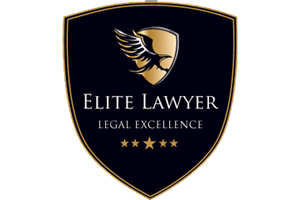- Free Consultation: (213) 251-5533 Tap Here to Call Us
Understanding the Technology Alert List (TAL): What Immigrants Need to Know

If you are an immigrant applying for a U.S. visa and work in science, technology, engineering, or mathematics (STEM), you may be affected by the Technology Alert List (TAL). The TAL is a set of guidelines used by U.S. consulates to identify visa applicants whose work involves sensitive technologies that could pose a national security risk. If your visa application is flagged under the TAL, it may result in administrative delays, additional security checks, or even visa refusals.
Many applicants first learn about the TAL when their visa application is temporarily refused under Immigration and Nationality Act (INA) § 221(g). This means that your case requires further review before a final decision can be made. The consular officer may ask for additional documents, such as a detailed resume, a letter from your employer explaining your work, or proof that your research is not related to military applications. While this process can be frustrating, understanding how the TAL works and how to prepare your application can help reduce delays.
The TAL is closely linked to U.S. export control laws, specifically the Export Administration Regulations (EAR) and the International Traffic in Arms Regulations (ITAR). These regulations restrict the transfer of certain technologies to foreign nationals to prevent unauthorized access to sensitive military or dual-use technologies. If your work falls within one of the high-risk categories, such as artificial intelligence, cryptography, nuclear technology, aerospace engineering, or biotechnology, your visa may be subject to additional scrutiny.
For example, consider a software engineer from India who is offered an H-1B visa to work on encryption technology at a U.S. cybersecurity firm. Because encryption is a highly regulated field, the consulate may place the application on hold while conducting background checks. Similarly, a Chinese Ph.D. student admitted to a U.S. university for research in nanotechnology may face a visa delay if the government suspects that the research could be used for military applications. In another case, a mechanical engineer from Iran applying for an L-1 visa to transfer to a U.S. aerospace company may experience additional processing because aerospace technology is considered sensitive under U.S. export laws.
If you believe that your visa application might be affected by the TAL, you should take proactive steps to avoid unnecessary delays. First, prepare a complete and detailed visa application. Include all requested documents, such as a well-organized resume, an employer letter clarifying your job responsibilities, and evidence that your work has no military or defense applications. Second, if your field is in a sensitive area, be ready to provide additional explanations about the purpose of your research or employment. Third, apply for your visa as early as possible, since administrative processing can take weeks or even months.
If your visa is delayed due to TAL-related administrative processing, stay in close contact with the U.S. consulate handling your case. You may check the status of your application through the Department of State’s visa status check website. If the delay extends beyond the usual processing time, you may consult an immigration attorney for further assistance. In some cases, legal intervention, such as requesting congressional assistance or filing a writ of mandamus in federal court, may be necessary to push the government to complete its review.
It is important to understand that being flagged under the TAL does not mean your visa will be denied. Many applicants successfully obtain their visas after completing additional processing. However, to avoid complications, it is advisable to stay informed about U.S. export control laws and how they might impact your immigration journey. If you work in a high-tech field, consulting with an immigration attorney before your visa interview can help you navigate potential issues.
As the U.S. government continues to prioritize national security, the application of the TAL may become stricter. Immigrants working in STEM fields should be prepared for possible scrutiny and take proactive measures to ensure a smooth visa application process. By understanding the TAL, preparing the necessary documents, and seeking legal guidance when needed, you can improve your chances of securing your visa without unnecessary delays.
If you are unsure about how your immigration status, it is advisable to consult with an experienced immigration attorney before taking any action. As one of the most established firms practicing exclusively in the area of immigration law, our firm has successfully helped our clients obtain temporary work permits, green cards, and citizenship for generations. Note that the information provided in this article and website is intended for general information purposes only and should not be construed as legal advice. For additional information or information regarding other immigration matters, please call Attorney Thomas M. Lee for a free consultation at 213-251-5533








